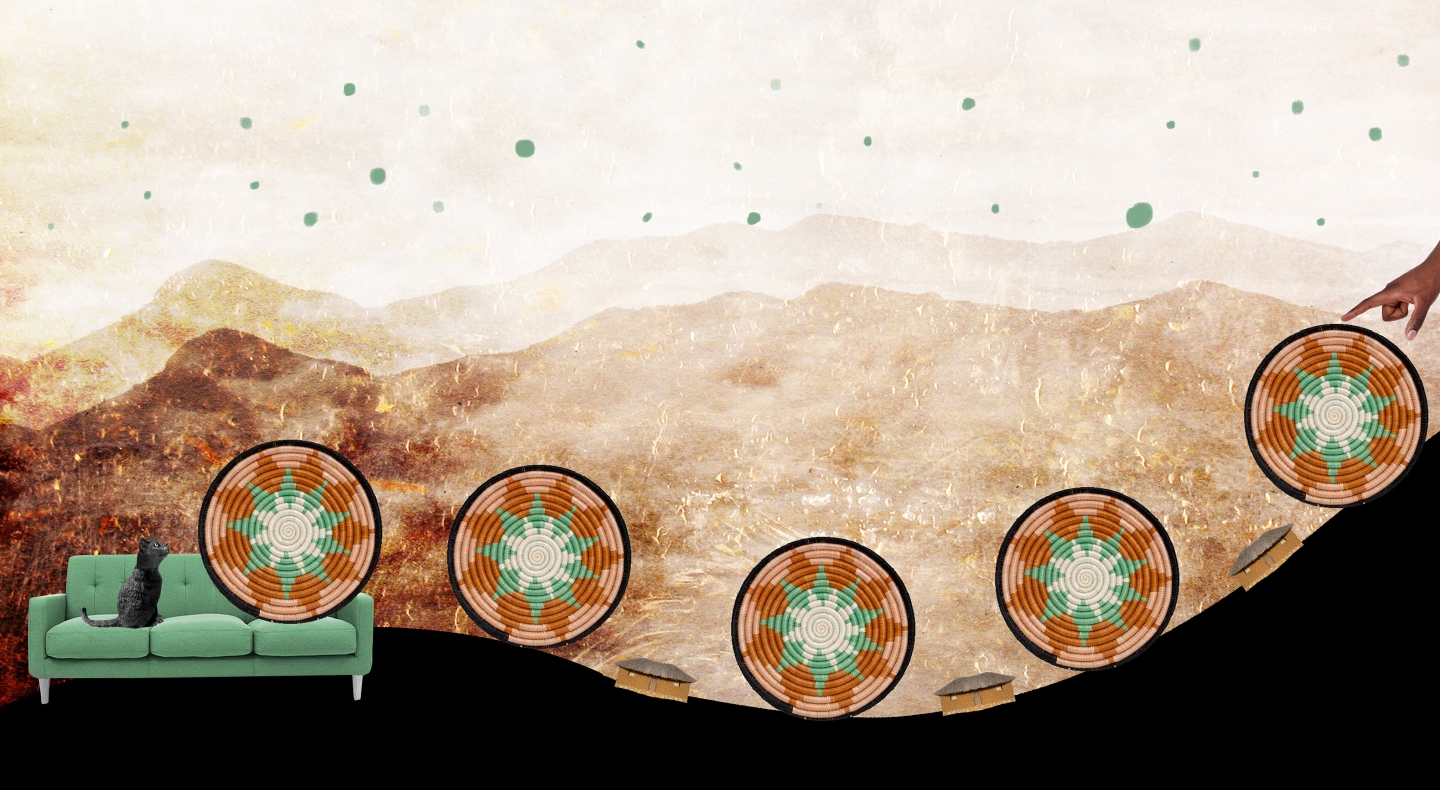All Across Africa, weaving a better world
Published on 27 February 2020

American-born Alicia Wallace was just 14 years old when she embarked on her first charitable mission in Mexico. By the age of 22, she was accompanying humanitarian doctors to Sierra Leone. Today, she provides work for thousands of African artisans.
If Alicia Wallace had simply settled for being a philanthropist, she would have set up an NGO and divided her time between charity dinners in the U.S.A. and disadvantaged villages in Rwanda. But this highly altruistic thirty-something knew deep-down that simply chasing donations wasn’t the most effective course of action. She was convinced that her efforts should instead be focused on empowering populations in need, thereby helping them maintain their dignity. All Across Africa, the company she set up with her mentor Greg Stone, employs over 3,600 artisans across Rwanda, Ghana and Uganda. The majority of them are women, and they spend their days weaving traditional baskets based on designs drawn up in the firm’s San Diego design office. The baskets are then purchased by “AAA” and marketed across the globe under the KAZI brand. The firm is a Benefit Corporation, a form of legal structure that only exists in North America. The business model allows the company to be self-funded and generate profit, but it is also obliged to demonstrate to its shareholders what it is giving back to society. “The more money we earn, the more we are able to develop, and the more employment we can generate, thereby enabling these families to live more comfortable lives”, explains Alicia Wallace from her MAISON&OBJET stand.
Originally from Seattle, the young woman has come a long way since first joining the association Rwanda Partners back in 2010 alongside her future associate Greg Stone. Having been profoundly affected by the sight of children dying in Sierra Leone, Alicia headed to Rwanda to provide support to a population traumatised by the 1994 genocide. Desperate to convince the mothers to send their children to school rather than forcing them to work in the fields, Alicia and Greg came up with the perfect solution: the women could produce baskets and the pair would set up a firm to sell them overseas. That would generate enough revenue to sustain the entire household without having to send the children out to work.
“I’m really close to these African mums. The more I sell, the more families I’ll be able to help out of poverty.”
The first volunteers to come onboard were sisters Priscilla and Maria. By 2013, they’d managed to get together a group of some thirty artisans. And when Alicia began sourcing outlets, she struck gold on day one by convincing wholesale chain Costco to retail the families’ handcrafted wares. The baskets were absolutely stunning, and looked so out of place between the packs of beer and piles of toilet paper that they instantly caught customers’ eyes. It took just one year for Alicia to put together a managerial team, show the women how to open bank accounts, set up cooperatives… and train up 3,000 artisans. All Across Africa agreed to purchase their wares at a price five times higher than they could secure on the local market subject to three conditions being met: each item had to be perfectly made; the baskets had to be produced using local natural fibres; and their children must attend school. “The effect is virtuous, Alicia explains. During the first year, the families start eating better, and the second year, their homes are improved. Eventually, they emerge from poverty.” Indirectly, the entire community ends up benefitting one way or another: by paying taxes, the families contribute to the electrification of their villages and the building of roads. Impact studies show that each artisan provides for 5.7 individuals, as well as creating employment in education, construction, medicine and agriculture.
Today, the artisans are organised into independent cooperatives across Rwanda, Ghana and Uganda. AAA has 50 employees, including a dozen in the U.S.A. and some forty who are locally based. “We initially decided to come to MAISON&OBJET because the American market is fairly restricted, and the result is that now our products are retailed in 60 countries worldwide. Plus, we’ve always loved the design challenges Paris brings.” The brand is positioned in several different markets, ranging from fairly simple designs aimed at the mass-market retail trade to other more sophisticated pieces for exclusive outlets, such as the Guggenheim Museum in Venice. The baskets’ designs pay tribute to Africa’s Great Lakes region and symbolise peace: three zig-zagging stripes represent ethnic unity, curves depict the mountains in the land of a thousand hills, and circles echo the renewal brought by the monsoon.
Alicia has set herself the goal of providing work for 6,000 artisans by extending her project to Kenya and Ethiopia. “I’ve got a nine-month-old baby of my own, which has made me feel even closer to these African mothers. The more I sell, the more families I’ll be able to help out of poverty.” The young woman is clearly moved on talking about Burundi, a country where she was invited to start working by the UN. But the civil war meant that her mission became too dangerous. A frustration that clearly makes her other successes all the more precious today.
By Caroline Tossan